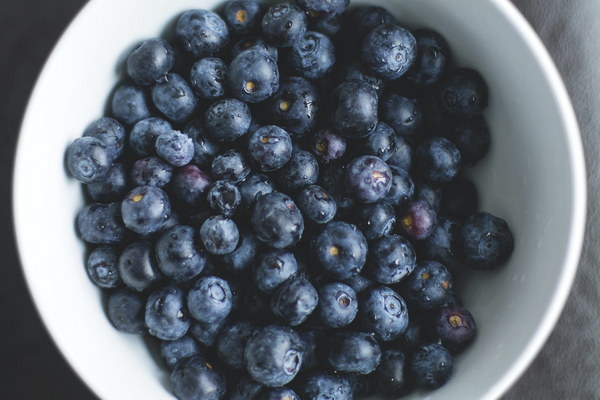Is Eating Persimmons Raw Beneficial for Lung Health Are They Toxic
Is Eating Persimmons Raw Beneficial for Lung Health? Are They Toxic?
Persimmons, those delectable fruits with their vibrant orange hue and sweet, jelly-like flesh, have been a staple in many diets for centuries. Known for their unique flavor and nutritional profile, persimmons have been associated with various health benefits. One of the most debated aspects of persimmon consumption is whether eating them raw can be beneficial for lung health and whether they pose any toxic risks. Let's delve into these questions to understand the truth behind persimmons and their impact on lung health.
Persimmons: A Nutritional Powerhouse
Firstly, let's look at the nutritional value of persimmons. These fruits are rich in vitamins, minerals, and antioxidants. They contain a high amount of vitamin A, which is essential for maintaining healthy skin and vision. Persimmons are also a good source of vitamin C, which plays a crucial role in supporting the immune system.
Moreover, persimmons are packed with dietary fiber, which is beneficial for digestive health. The fiber can help regulate bowel movements and lower the risk of constipation. Additionally, the high fiber content in persimmons can aid in weight management by promoting satiety and reducing calorie intake.
Persimmons and Lung Health
Now, let's address the question of whether eating persimmons raw can benefit lung health. There isn't a direct link between persimmon consumption and lung health improvement. However, the antioxidants present in persimmons can contribute to overall health and potentially support respiratory function.
Antioxidants, such as flavonoids and carotenoids, help combat oxidative stress in the body, which can damage cells and contribute to chronic diseases, including respiratory conditions. By reducing oxidative stress, antioxidants may help protect the lungs from inflammation and damage.
The Raw Persimmon Controversy
While there are potential benefits to consuming persimmons, especially in their raw form, there is a significant controversy surrounding their toxicity. The issue lies with the type of persimmon and how it is consumed.
There are two main types of persimmons: astringent and non-astringent. Astringent persimmons contain a compound called tannin, which can be harmful if consumed in large quantities. When ingested raw, the tannin in astringent persimmons can cause gastrointestinal irritation, leading to symptoms like nausea, vomiting, and diarrhea.
On the other hand, non-astringent persimmons have a lower tannin content and are generally safe to eat raw. These persimmons are sweet and soft, and their flesh is often used in desserts and smoothies.

Conclusion
In conclusion, while eating persimmons raw can provide various health benefits, such as a boost of vitamins and antioxidants, there is a risk associated with astringent persimmons. It is essential to distinguish between astringent and non-astringent persimmons before consuming them raw.
For those who choose to eat persimmons raw, it is advisable to select non-astringent varieties and consume them in moderation. As with any fruit, overindulgence can lead to digestive discomfort. Moreover, it is always a good idea to consult with a healthcare professional before making significant changes to your diet, especially if you have specific health concerns or conditions.
In summary, persimmons can be a healthy addition to your diet, potentially supporting lung health through their antioxidant content. However, it is crucial to be aware of the type of persimmon and to consume it responsibly to avoid the risks associated with tannins.









